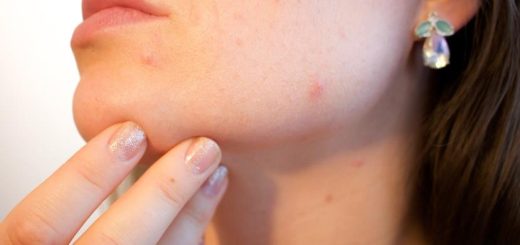Exploring Relief from Anxiety: From Cognitive Behavioral Therapy to Naturopathy
Understanding Anxiety and Its Impact
Before delving into treatment methods, it’s crucial to grasp what anxiety is and how it affects individuals. Anxiety is characterized by excessive worry or fear that can interfere with daily activities. It can present in various forms, including generalized anxiety disorder (GAD), panic disorder, social anxiety disorder, and specific phobias. Symptoms often include restlessness, fatigue, irritability, muscle tension, and sleep disturbances. The impact of anxiety can be profound, affecting one’s quality of life, relationships, and overall health.
Cognitive Behavioral Therapy: A Structured Approach to Anxiety
Cognitive Behavioral Therapy (CBT) is a well-established, evidence-based treatment for anxiety. CBT is based on the concept that our thoughts, feelings, and behaviors are interconnected, and that altering negative thought patterns can lead to changes in emotions and behaviors.
- Understanding CBT
CBT operates on the premise that irrational and distorted thinking patterns contribute to anxiety. By identifying and challenging these negative thoughts, individuals can learn to manage their anxiety more effectively. This therapy is typically structured into a series of sessions with a trained therapist and involves several key components:
- Cognitive Restructuring: This involves identifying and challenging distorted beliefs. For example, a person with social anxiety might believe that they will embarrass themselves in social situations. CBT helps them reframe this belief to a more balanced and realistic perspective.
- Behavioral Activation: This technique encourages individuals to engage in activities that they find pleasurable or fulfilling, counteracting the avoidance behavior that often accompanies anxiety.
- Exposure Therapy: Gradual exposure to feared situations or objects can help individuals confront and reduce their anxiety. This process is done in a controlled manner, allowing individuals to build confidence and reduce fear over time.
- Effectiveness of CBT
Research shows that CBT is highly effective for treating various types of anxiety disorders. Studies have demonstrated that CBT can lead to significant reductions in anxiety symptoms, with lasting effects even after therapy has ended. The structured nature of CBT provides individuals with practical tools and strategies to manage their anxiety on their own, promoting long-term recovery.
- Getting Started with CBT
To benefit from CBT, individuals should seek a qualified therapist who specializes in cognitive behavioral techniques. Therapy sessions typically involve collaborative work between the therapist and client, where they explore thoughts, feelings, and behaviors together. For those unable to access in-person therapy, online CBT programs and apps can offer valuable resources and guidance.
Naturopathy: A Holistic Approach to Anxiety
Naturopathy is an alternative approach that focuses on natural remedies and lifestyle changes to promote overall health and well-being. It emphasizes the body’s inherent ability to heal itself and incorporates various techniques to address anxiety from a holistic perspective.
- Principles of Naturopathy
Naturopathy operates on several guiding principles:
- The Healing Power of Nature: Naturopaths believe that the body has an innate ability to heal itself when supported by a healthy lifestyle and natural remedies.
- Treating the Whole Person: Rather than focusing solely on symptoms, naturopathy aims to address underlying causes of anxiety by considering physical, emotional, and spiritual aspects.
- Prevention and Education: Naturopathy emphasizes the importance of preventive care and empowering individuals with knowledge about their health.
- Natural Remedies for Anxiety
Naturopathy offers a range of natural remedies to alleviate anxiety symptoms:
- Herbal Supplements: Herbs such as valerian root, chamomile, and lavender have been traditionally used to promote relaxation and reduce anxiety. These supplements can be taken in various forms, including teas, capsules, or tinctures.
- Nutrition: A balanced diet rich in omega-3 fatty acids, B vitamins, and magnesium can support mental health. Foods like fatty fish, leafy greens, and nuts are beneficial for reducing anxiety.
- Mind-Body Techniques: Practices such as yoga, meditation, and deep breathing exercises are integral to naturopathic treatment. These techniques help to calm the mind, improve emotional resilience, and reduce stress.
- Lifestyle Modifications: Regular physical activity, adequate sleep, and stress management strategies are crucial components of naturopathic care. Incorporating these elements into daily life can significantly improve anxiety symptoms.
- Effectiveness and Considerations
While many individuals find relief from anxiety through naturopathic approaches, it’s important to consider that results can vary. The effectiveness of natural remedies often depends on individual factors and the severity of anxiety. Consulting with a licensed naturopathic doctor can provide personalized guidance and ensure that remedies are used safely and effectively.
Combining Approaches for Optimal Relief
For many individuals, a combination of CBT and naturopathy can offer comprehensive relief from anxiety. Integrating these approaches allows for addressing anxiety from both psychological and physiological angles. For example, while CBT helps to reframe negative thought patterns and develop coping strategies, naturopathic remedies can support overall well-being and reduce physical symptoms of anxiety.
Conclusion
Relieving anxiety involves exploring various approaches and finding what works best for each individual. Cognitive Behavioral Therapy provides a structured, evidence-based method for managing anxiety through cognitive and behavioral changes. Naturopathy, on the other hand, offers a holistic approach that focuses on natural remedies and lifestyle changes. By understanding and utilizing these methods, individuals can find effective ways to alleviate anxiety and improve their quality of life. Whether through structured therapy or natural interventions, the journey to managing anxiety is personal and multifaceted, and the right approach can pave the way for lasting relief and well-being.


















